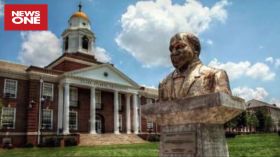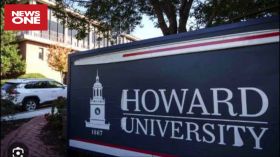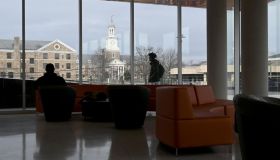HBCUs In Atlanta Plan In-Person Classes For Some Students During Pandemic
HBCUs In Atlanta ‘Gamble’ With In-Person Classes For Some Students Despite, And Because Of, Pandemic
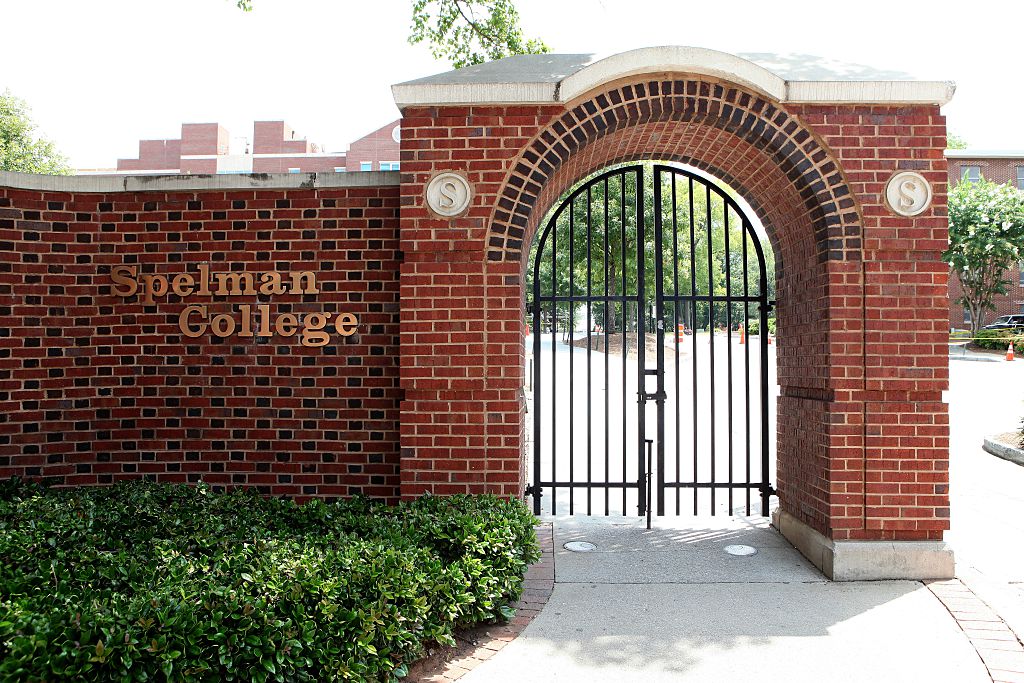
Source: Raymond Boyd / Getty
During what should be a time of celebration for historically Black colleges and universities (HBCUs) — what with Howard University alumna Kamala Harris advancing to the highest levels of American government following this month’s historical election — has instead become a time of survival for both the institutions and their students as their shared broader populations disproportionately suffer from the coronavirus pandemic.
It was in that context that the three members of the Atlanta University Center (AUC) on Monday announced intentions to re-open their campuses and resume in-person classes for certain students for the upcoming spring semester. The decision for Clark Atlanta University, Morehouse College and Spelman College was not an easy one, school leaders said. However, HBCU experts have also described the situation as being increasingly existential for both the students and the schools.
“After assessing the COVID-19 situation and hearing from our students and families who very much want to return to campus, we have developed a plan that will allow up to 1,200 students to live and learn on campus beginning February 1, 2021,” Morehuse President David A. Thomas said in a statement on the school website. Similar statements from Spelman and Clark Atlanta were issued, as well.
All three laid out plans to maintain the health and safety of students, faculty and staff with a fraction of each school’s population expected to arrive at their respective campuses to begin classes on Feb. 1, 2021.
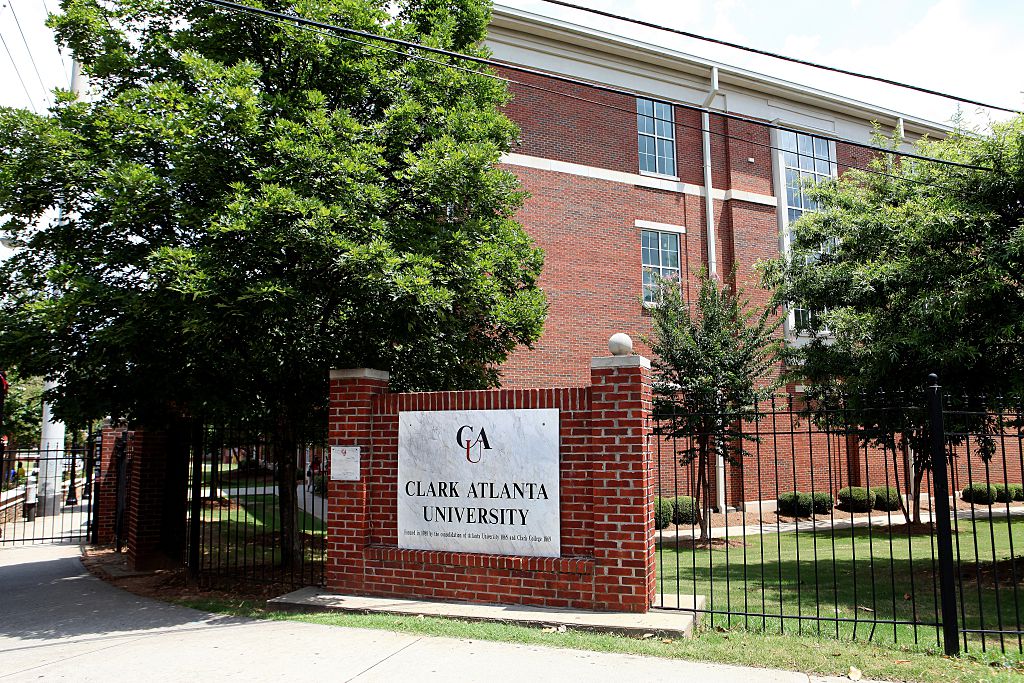
Source: Raymond Boyd / Getty
Politico described the move as a “gamble” during a recent interview with Lodriguez Murray, the United Negro College Fund‘s senior vice president of public policy and government affairs, who said returning to campus was essential despite the pandemic’s second wave sweeping through much of the country.
“Even so, a number of the institutions felt it imperative to come back in person,” Murray added.
Each AUC school has prioritized its first-year students, whether freshmen or transfers, as well as certain upperclassmen in an effort to sustain their respective enrollments.
The Atlanta Journal-Constitution reported:
“Clark Atlanta, which had nearly 4,000 students last year, the largest enrollment of the three schools, plans to allow first-time freshmen, new transfer students, seniors scheduled to graduate in May and some student-athletes to return to campus. Morehouse’s plan consists of allowing up to 1,200 freshmen and upperclassmen and a limited number of faculty and staff members. Spelman, which had an enrollment last year of about 2,100 students, plans to let 350 students in the residence halls. First-year students, seniors and some student leaders will be given first priority for living on campus.”
According to statistics from the centers for Disease Control, which is based in Atlanta, Georgia is among the states experiencing a surge in coronavirus cases. The trend is prompting governors to move toward statewide shutdowns to prevent transmission.
Harry L. Williams, president of the Thurgood Marshall College Fund, told Politico that HBCUs have managed to keep infection rates low while most being located in a part of the country that has more relaxed social policies surrounding the coronavirus. Georgia Gov. Brian Kemp was slammed back in April after statistics at the time showed that Black people in Georgia were suffering gravely from the pandemic.
While all three schools have been conducting online classes since the start of the school year, it’s an option that may not be sustainable for some of its students who data show receive an outsized amount of financial aid and may not have access to the type of digital resources that are conducive for effective remote learning, Williams added.
“Coming to a campus is better for a lot of our students than to stay in their existing communities,” he said.
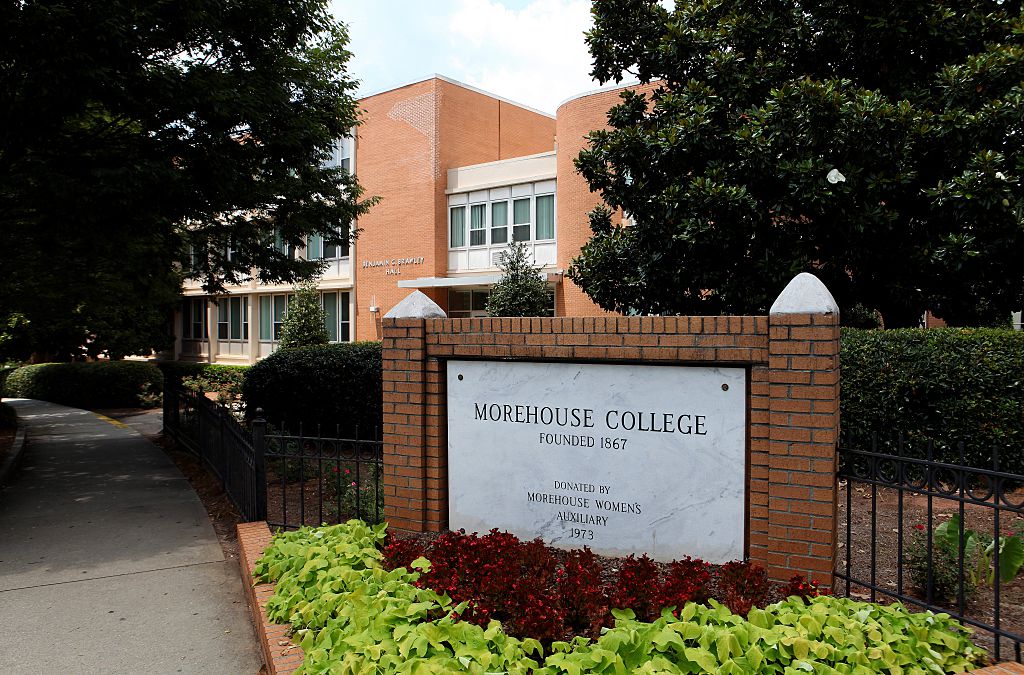
Source: Raymond Boyd / Getty
The plan to welcome the students back to campus is contingent upon the pandemic and whether the curve trends in the right direction. Leaders from each school said things can be changed at a moment’s notice.
“Spelman is prepared to adjust their mode of operation, including continuing with fully remote learning, should the pandemic not improve based on data from public health organizations,” according to a statement on its website.
George T. French Jr., Clark Atlanta’s president and chair of the Atlanta University Center Consortium council of presidents, said he will be “informed by science and should circumstances change, we will maintain online instruction.”
The decision in Atlanta could prompt other HBCUs to make similar moves as enrollment at historically Black colleges and universities has fluctuated over the last decade, thanks in part to an increased number of Black students attending predominately white institutions (PWIs) instead, according to data from the National Canter For Education Statistics.
SEE ALSO:
Morris Brown College Makes Stride Towards Regaining Accreditation
NBA Player Robert Covington Donates $1 Million To Tennessee State University
